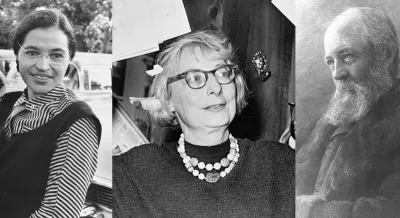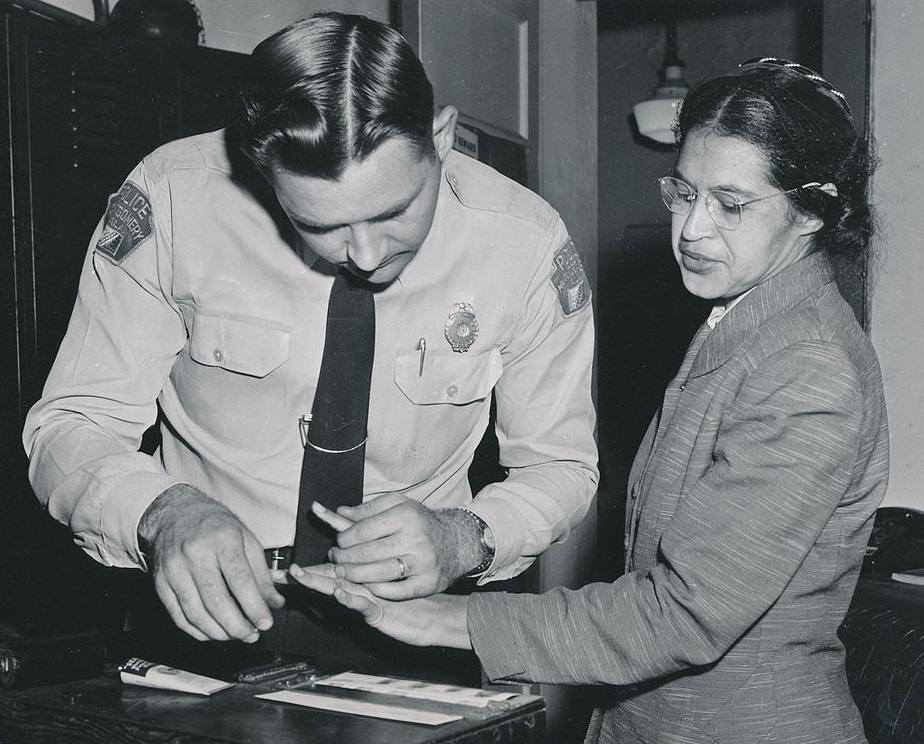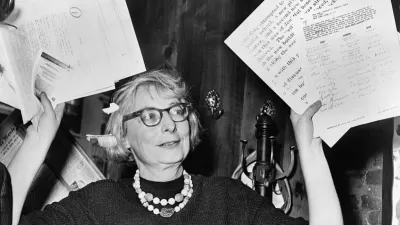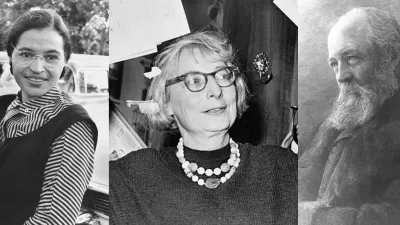The world has changed since Planetizen crowdsourced its "Top Urban Thinkers" in 2009. Which urban planners, designers, doers, and dreamers do you think have had the most influence on the world?

[Update: Voting is complete, and the 100 Most Influential Urbanists are available for viewing.]
Planetizen is rebooting the "Top Thinkers" crowdsourcing experiment last conducted in 2009. This time, however, we're broadening the discussion to survey our audience on their opinion of the "Most Influential Urbanists." Urbanists are more than just thinkers—they're designers, doers, advocates, contrarians, and, yes, planners.
We invite you to think radically about your nominations. Environmentalists and musicians are two examples of the kind of non-traditional urbanists who perhaps should be included on this list. Outsiders, artists, and citizens going about their daily lives have certainly had tremendous influence on the way we think about cities and how cities are developed, and their contributions should be recognized. An exemplary nominee might have contributed to the future of cities by choosing a better seat on the bus (like Rosa Parks did), or inventing the term "gentrification" (like Ruth Glass did).
When Planetizen last published the "Top Thinkers" list in 2009, Jane Jacobs ran away with the vote, but women and people of color were largely unrecognized through the nominations and voting process. We hope that this time around we can do a better collective job of representing the diversity of the field, its history, and the communities where we all live and work.
If you have nominations, please send an email to [email protected], with the subject line "Influential Urbanists." Also feel free to join the discussion with @planetizen and by using the #topurbanist hashtag on Twitter. We'll release the official results of the "Most Influential Urbanists" poll, and let the voting commence, during the first week of September.


Planetizen Federal Action Tracker
A weekly monitor of how Trump’s orders and actions are impacting planners and planning in America.

Maui's Vacation Rental Debate Turns Ugly
Verbal attacks, misinformation campaigns and fistfights plague a high-stakes debate to convert thousands of vacation rentals into long-term housing.

San Francisco Suspends Traffic Calming Amidst Record Deaths
Citing “a challenging fiscal landscape,” the city will cease the program on the heels of 42 traffic deaths, including 24 pedestrians.

Defunct Pittsburgh Power Plant to Become Residential Tower
A decommissioned steam heat plant will be redeveloped into almost 100 affordable housing units.

Trump Prompts Restructuring of Transportation Research Board in “Unprecedented Overreach”
The TRB has eliminated more than half of its committees including those focused on climate, equity, and cities.

Amtrak Rolls Out New Orleans to Alabama “Mardi Gras” Train
The new service will operate morning and evening departures between Mobile and New Orleans.
Urban Design for Planners 1: Software Tools
This six-course series explores essential urban design concepts using open source software and equips planners with the tools they need to participate fully in the urban design process.
Planning for Universal Design
Learn the tools for implementing Universal Design in planning regulations.
Heyer Gruel & Associates PA
JM Goldson LLC
Custer County Colorado
City of Camden Redevelopment Agency
City of Astoria
Transportation Research & Education Center (TREC) at Portland State University
Jefferson Parish Government
Camden Redevelopment Agency
City of Claremont




























